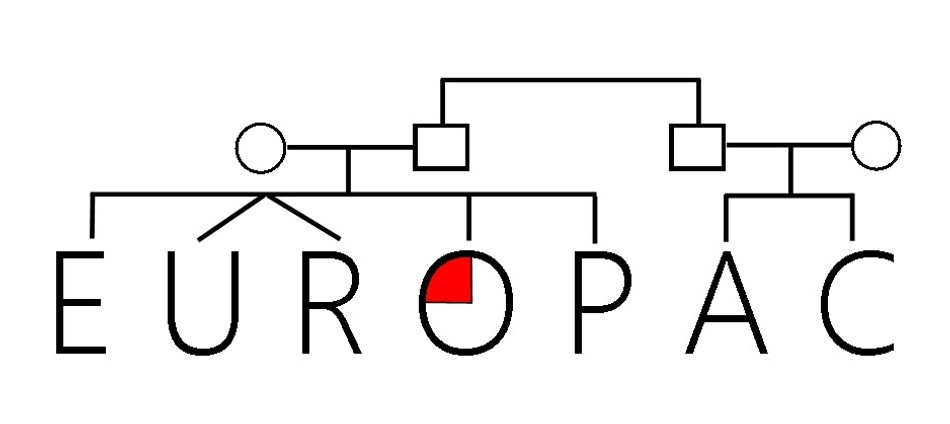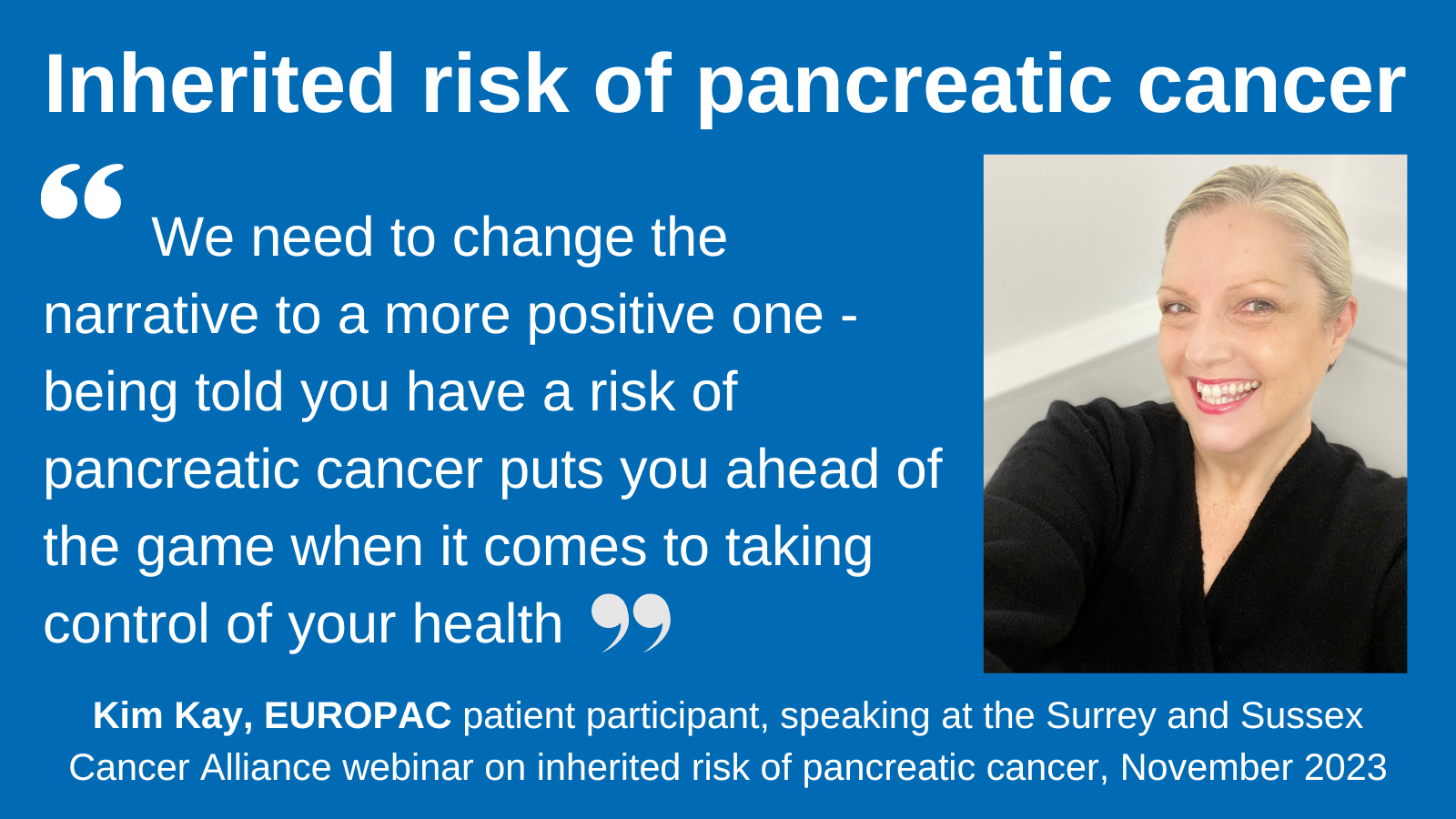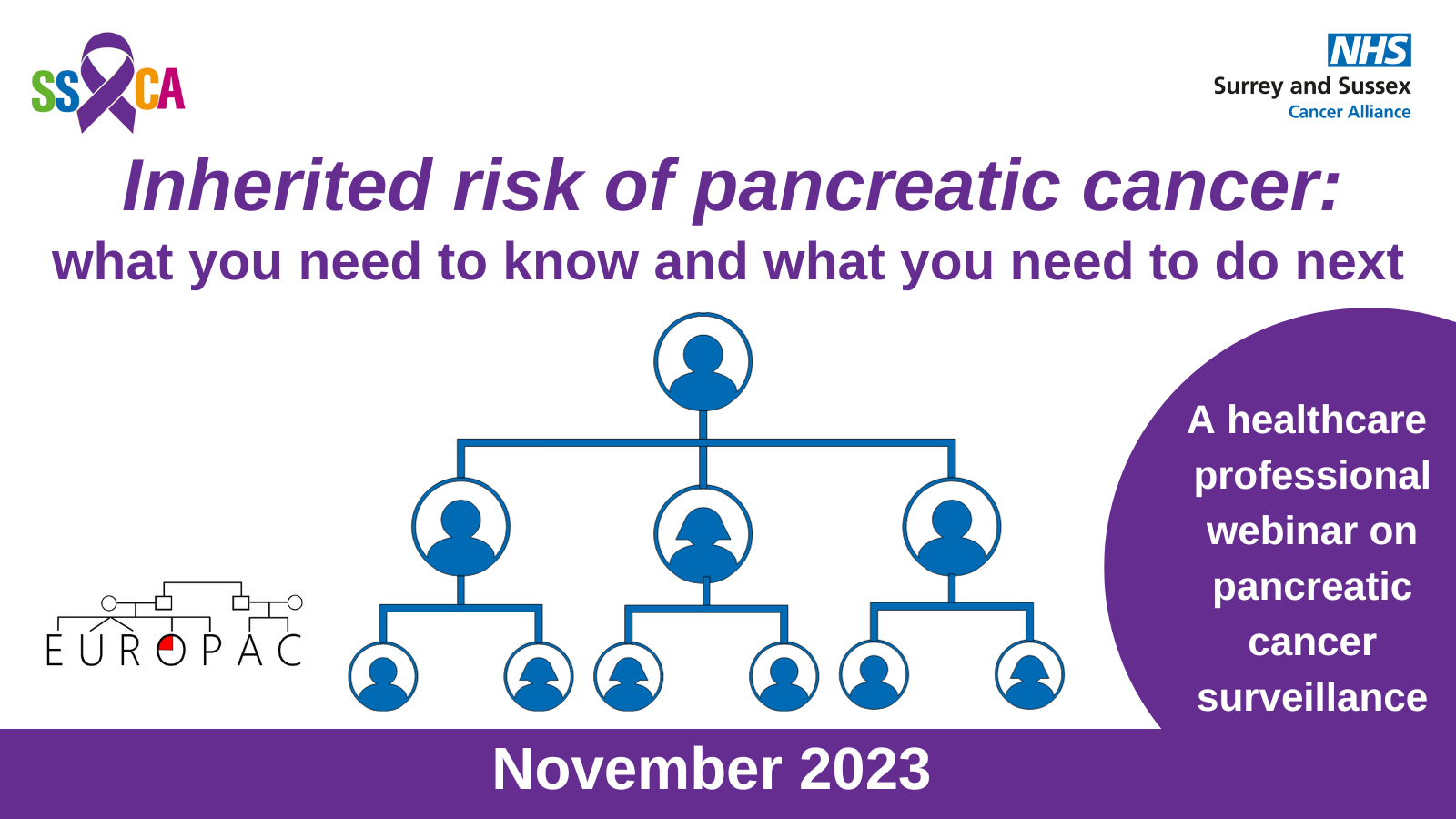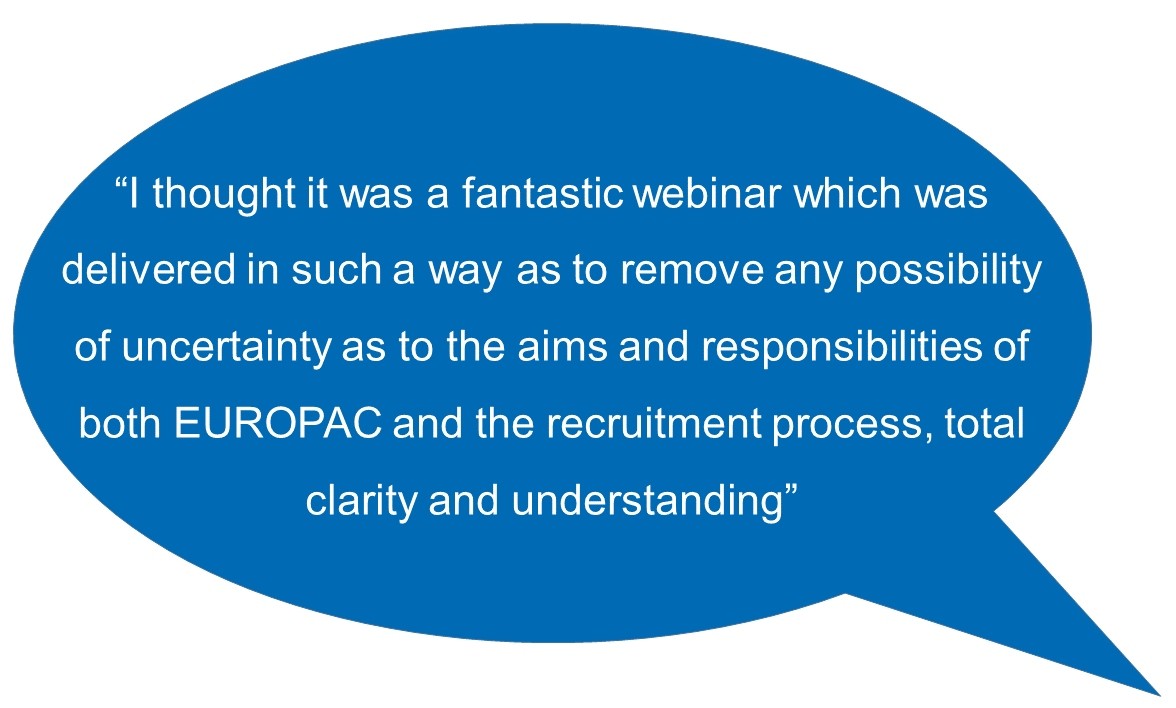Healthc are professionals can now refer people with a family history of pancreatic cancer to the European Registry of Hereditary Pancreatic Diseases (EUROPAC) for annual surveillance.
are professionals can now refer people with a family history of pancreatic cancer to the European Registry of Hereditary Pancreatic Diseases (EUROPAC) for annual surveillance.
Around 10% of pancreatic cancers are caused by inherited risk factors. These can occur in families with a history of either pancreatic cancer or hereditary pancreatitis or in people who carry an at-risk genetic mutation.
NICE guidance (NG85) recommends pancreatic cancer surveillance for people with inherited high risk factors.
EUROPAC is a registry for families with histories of familial pancreatic cancer and hereditary pancreatitis. The EUROPAC study also runs surveillance programmes for people with high-risk factors.
The nearest surveillance centres for patients in the Surrey and Sussex Cancer Alliance region are:
- University Hospital Southampton NHS Foundation Trust
- University College London Hospitals NHS Foundation Trust
On this page you will find:
- Information for healthcare professionals about EUROPAC including potential referral routes into the study for eligible patients
- The patient referral form
- A guide to who should be referred onto EUROPAC
- Our EUROPAC pancreatic surveillance toolkit
Who should be referred to EUROPAC?
Patients who have:
- Two or more First Degree Relatives with pancreatic cancer e.g. parent and grandparent, parent and sibling, parent and aunt/uncle etc.
- Three or more cases of pancreatic cancer in the family
- One or more cases of pancreatic cancer with an associated syndrome
- Peutz-Jeghers syndrome
- Two or more relatives with idiopathic pancreatitis
- One case of idiopathic pancreatitis
- Family history of pancreatitis and PRSS1
For a full list of referral criteria including genetic mutations and diagnosed genetic conditions, refer to the EUROPAC health professional information leaflet.
Self-referral to EUROPAC
The EUROPAC team welcomes self-referrals from individuals concerned about family history.
Individuals can get in touch with EUROPAC through the ‘contact us’ section of the EUROPAC website, emailing europac@liv.ac.uk or calling 0151 795 1256.
Got a question? 
For general enquiries, email europac@liv.ac.uk
For referrals and queries with sensitive information, emaileuropac.study@liverpoolft.nhs.uk
What it means to be on the European Registry of Hereditary Pancreatic Diseases: a patient's story
Kim Kay, 54, is an interior designer and runs a consultancy business with her husband Peter. She has three stepchildren and is a grandmother of two. Kim has recently been referred to EUROPAC for annual surveillance.
She says knowing she has a genetic condition has “put me ahead of the game when it comes to taking control of my health”.
Read Kim’s story here - Kim Kay's story - or listen to her speak at our recent webinar on the inherited risk of pancreatic cancer. See below.



